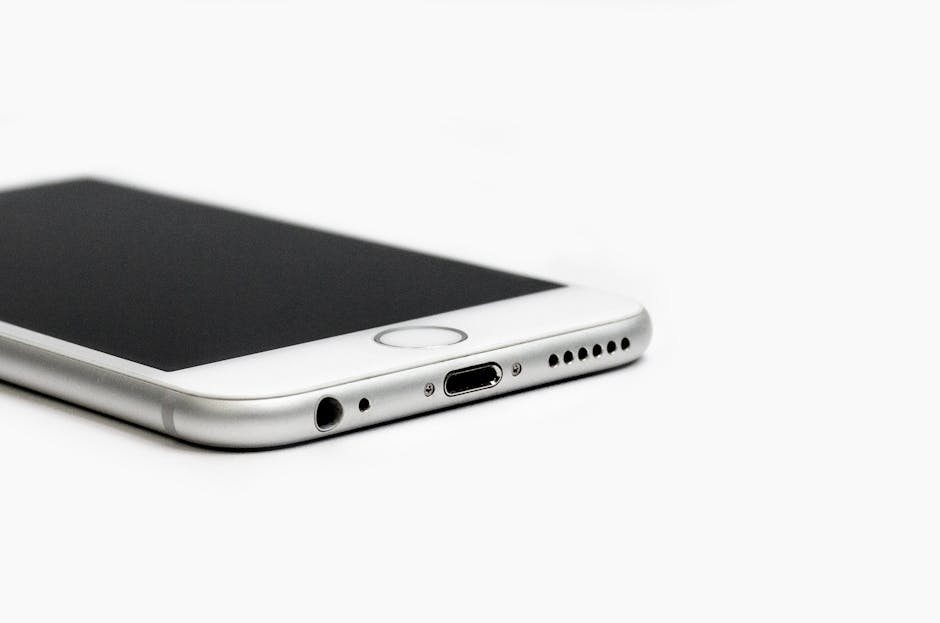Honor Watch 5 Ultra debuts with titanium build and ECG, Honor Pad V9 and Earbuds Open go global - Related to v9, titanium, joined, samsung, ‘7
Another phone brand just joined the elite ‘7 years of updates’ club

When Google launched the Pixel 8 series, it sent a shockwave through the world of Android smartphones by revealing that those new flagships would get a whopping seven years of Android updates. Samsung quickly followed suit for its flagship Galaxy phones. Since then, we’ve seen a handful of brands extend their enhancement commitments, but. Very few have joined the “seven-year club.”.
Well, there’s a new member of that elite organization: HONOR. Today, at Mobile World Congress 2025 , during its poorly named HONOR ALPHA Plan keynote event, the organization confirmed it will offer seven years of Android upgrades and. Security patches for flagship devices in its Magic series. Traditionally, Magic products are HONOR’s top-of-the-line Android devices, including slate-style phones, foldables. And tablets.
The HONOR Magic 7 Pro will be the first device to earn this policy. Previously, HONOR told us the Magic 7 Pro would see a four-year OS and five-year security improvement pledge, so this is a nice bump.
However. It’s unclear if this policy will retroactively apply to any other older HONOR phones. It’s also unclear which future devices will get this, although the inevitable foldable HONOR Magic V4 is a likely candidate.
Hopefully, over the coming weeks and. Months, we’ll learn more specifics about this. For now, HONOR fans should be excited that a much more extensive modification commitment is coming to the Magic 7 Pro and other flagship devices.
Xiaomi 15 Ultra If you want a well-rounded software experience, the best AI tools. Or a gaming handset that stays cool under pressure, this isn't the ...
Want to score a huge deal on your next Galaxy Watch model? Consider the 44mm Galaxy Watch 6 with LTE! This buddy is a huge 48% off its...
YouTube clamps down on third party apps that block ads. Experts predict a new cyber-war between Iran and Israel. Elon Musk backs down on his fight wit...
Honor Watch 5 Ultra debuts with titanium build and ECG, Honor Pad V9 and Earbuds Open go global

Today, Honor unveiled its first “Ultra” watch. It is a sequel to – and a significant upgrade from – the Honor Watch 4 Pro from a couple of years ago. Unlike the current Honor Watch 5, this one has a circular display housed inside an octagonal body.
Meanwhile, the Honor Pad V9 and Honor Buds Open are expanding to global markets.
The new Honor Watch 5 Ultra stands out from its siblings with premium materials – the mid-frame uses a Grade 5 titanium alloy while the back is made of a ceramic-like material and. A polymer fiber composite. This contrasts with the aluminum build of the vanilla Watch 5 and even the stainless steel body of the Watch 4 Pro.
On the front is a sapphire crystal for extra durability and. Scratch resistance. Underneath that is a circular ” OLED display (466 x 466px, 310ppi), an LTPO panel with a variable refresh rate of up to 60Hz for smooth animations and. Lower for longer battery life (we’ll get to that). Always On Display mode is supported.
Honor’s first Ultra watch is its first with ECG. The Quick Health Scan feature will give you instant ECG readings, while the Health Monitor analysis will summarize all the health data that was collected from the previous day.
Going back to durability for a moment. The Honor Watch 5 Ultra supports a new Free Diving Mode that allows you to delve up to 40m (130ft) underwater. That exceeds the 5 ATM rating of previous Honor watches. Anyway, there are over 100 sports modes in total available.
The watch body measures across and is thick. It weighs without the strap. There’s a speaker on board so you can take calls without your phone on hand.
The watch UI can be navigated using the rotating crown. It is highly customizable with over 10,000 unique watch faces and the so-called Scenario Service Cards – these offer quick access to functions like weather forecasts, fitness tracking and. More.
The watch is powered by a 480mAh battery. That is the same capacity as the Watch 4 Pro and Watch 5. The Ultra promises up to 15 days of battery life and supports wireless charging.
The Honor Watch 5 Ultra is available in Black and Brown. These options are paired with a fluoroelastomer and a leather strap, respectively.
The Honor Pad V9 was introduced back in December. As a quick refresher, it’s an ” tablet (IPS LCD, 2,800 x 1,840px, 144Hz refresh rate, 10-bit colors) that is powered by the Dimensity 8350. The tablet supports Honor’s Magic Pencil 3 and a Smart Keyboard cover (both sold separately).
Highlights include a set of eight IMAX Enhanced speakers and. A 10,100mAh Si/C battery that fits snugly inside the slender frame. It supports 66W fast charging.
Moving to another aspect, these are designed for long-term comfort with their open-ear design and ear hooks. They also use AI to help you get around language barriers – they support translation from 15 languages in three modes (Shared Mode, ). Active Noise Cancellation is supported and a bone voiceprint sensor ensures your voice is clearly heard in calls even in noisy environments.
Each bud weighs and. Uses skin-friendly silicone. They are rated IP54, so you can go running in the rain – the hooks will make sure the buds never fall out of your ears. The buds can last up to 6 hours on a charge and a total of 22 hours with their charging case. They support quick top-ups too, 15 minutes in the case is enough for 2 hours of listening.
In September. Chrome started theming Android’s navigation bar for a slightly more immersive experience. Chrome for Android will soon start “going edge...
Alongside its “Alpha Plan,” Honor is launching its new Honor Pad V9 tablet at MWC 2025. Which delivers a great device for its price point.
Early Saturday morning listeners may have missed my weekend interview segment with Senator Colin Deacon. If you did, it was totally my fault. A typo i...
Samsung Galaxy A56 arrives with new design, six years of software updates

Samsung just introduced the Galaxy A56, which brings 45W wired charging support - four years after the business first adopted that rate. Other new aspects include the Exynos 1580 chip and a bigger " Super AMOLED screen with smaller bezels on all four sides.
The phone is also thinner than its predecessor at mm profile and elements a redesigned camera island; there are no longer protruding lenses.
This is the first phone to sport the Exynos 1580 chipset. Despite Samsung's introduction of the SoC back in October. The 1580 is a major upgrade over its predecessor, giving the Galaxy A56 a big performance advantage over the A55. Here, we have a GHz CPU, AMD-based GPU with 2x WGP and an NPU with TOPS, meaning performance should be up 37% from last year. Sadly, the rumors about 12 GB RAM were not true and here we have only 8 GB.
The display also got revamped, as it is now 1200 nits bright HBM and. 1900 nits bright at peak brightness. It keeps the Full HD+ resolution and the Gorilla Glass Victus+ protection. Speaking of strength, the Galaxy A56 also has Victus+ on the back and an aluminum frame.
The cameras did not change - the back has a 50 MP f/ main shooter, a 12 MP f/ ultra-wide snapper and a 5 MP f/ macro lens. And the front has a 12 MP f/ selfie cam. What changed is the algorithm, which is now driven by AI.
The Galaxy A56 capabilities context-aware image enhancement, improved nighttime photos and videos with a low-noise mode. And quicker continuous shooting. The seamless zoom between the main and ultra-wide cameras has also doubled in speed, and now the switch takes less than 430 ms.
Consumers will be glad to hear that Samsung is launching the Galaxy A56 with the promise of six years of security updates and. Six OS updates. The phone will launch with Android 15 and One UI , which brings a redesigned UI and more personalization options.
The phone also comes with Circle to Search, which allows customers to search for anything on their screen with one gesture immediately.
This is the first time the Galaxy A series gets the 45W wired charging, which was previously reserved only for select Galaxy S flagships.
Samsung calls it Super Fast Charge , and it should fill 65% of the 5,000 mAh cell in 30 minutes, while 0-100% should take 68 minutes.
The Samsung Galaxy A56 comes in four Awesome colors: Graphite Gray. Light Gray, Olive, and Pink. The price for the 128 GB version is €479/$499, while the 256 GB is €529/£499.
What does the word “Ultra” mean to you? In the tech world, I think most can agree that it’s come to mean “the absolute best.” The Galaxy S25 Ultra is ...
Apple's plan for its C1 in-house 5G modem chip, . Was to include it with the lower-priced iPhone 16e model a...
The Xiaomi 15 Ultra’s standout feature is ...
Market Impact Analysis
Market Growth Trend
| 2018 | 2019 | 2020 | 2021 | 2022 | 2023 | 2024 |
|---|---|---|---|---|---|---|
| 7.3% | 8.8% | 9.3% | 10.3% | 10.8% | 11.2% | 11.3% |
Quarterly Growth Rate
| Q1 2024 | Q2 2024 | Q3 2024 | Q4 2024 |
|---|---|---|---|
| 10.6% | 10.8% | 11.1% | 11.3% |
Market Segments and Growth Drivers
| Segment | Market Share | Growth Rate |
|---|---|---|
| Smartphones | 42% | 8.7% |
| Mobile Applications | 26% | 14.5% |
| Mobile Infrastructure | 17% | 12.8% |
| Wearables | 11% | 18.9% |
| Other Mobile Tech | 4% | 9.4% |
Technology Maturity Curve
Different technologies within the ecosystem are at varying stages of maturity:
Competitive Landscape Analysis
| Company | Market Share |
|---|---|
| Apple | 24.3% |
| Samsung | 22.7% |
| Huawei | 14.2% |
| Xiaomi | 11.8% |
| Google Pixel | 5.4% |
Future Outlook and Predictions
The Years Updates Honor landscape is evolving rapidly, driven by technological advancements, changing threat vectors, and shifting business requirements. Based on current trends and expert analyses, we can anticipate several significant developments across different time horizons:
Year-by-Year Technology Evolution
Based on current trajectory and expert analyses, we can project the following development timeline:
Technology Maturity Curve
Different technologies within the ecosystem are at varying stages of maturity, influencing adoption timelines and investment priorities:
Innovation Trigger
- Generative AI for specialized domains
- Blockchain for supply chain verification
Peak of Inflated Expectations
- Digital twins for business processes
- Quantum-resistant cryptography
Trough of Disillusionment
- Consumer AR/VR applications
- General-purpose blockchain
Slope of Enlightenment
- AI-driven analytics
- Edge computing
Plateau of Productivity
- Cloud infrastructure
- Mobile applications
Technology Evolution Timeline
- Technology adoption accelerating across industries
- digital transformation initiatives becoming mainstream
- Significant transformation of business processes through advanced technologies
- new digital business models emerging
- Fundamental shifts in how technology integrates with business and society
- emergence of new technology paradigms
Expert Perspectives
Leading experts in the mobile tech sector provide diverse perspectives on how the landscape will evolve over the coming years:
"Technology transformation will continue to accelerate, creating both challenges and opportunities."
— Industry Expert
"Organizations must balance innovation with practical implementation to achieve meaningful results."
— Technology Analyst
"The most successful adopters will focus on business outcomes rather than technology for its own sake."
— Research Director
Areas of Expert Consensus
- Acceleration of Innovation: The pace of technological evolution will continue to increase
- Practical Integration: Focus will shift from proof-of-concept to operational deployment
- Human-Technology Partnership: Most effective implementations will optimize human-machine collaboration
- Regulatory Influence: Regulatory frameworks will increasingly shape technology development
Short-Term Outlook (1-2 Years)
In the immediate future, organizations will focus on implementing and optimizing currently available technologies to address pressing mobile tech challenges:
- Technology adoption accelerating across industries
- digital transformation initiatives becoming mainstream
These developments will be characterized by incremental improvements to existing frameworks rather than revolutionary changes, with emphasis on practical deployment and measurable outcomes.
Mid-Term Outlook (3-5 Years)
As technologies mature and organizations adapt, more substantial transformations will emerge in how security is approached and implemented:
- Significant transformation of business processes through advanced technologies
- new digital business models emerging
This period will see significant changes in security architecture and operational models, with increasing automation and integration between previously siloed security functions. Organizations will shift from reactive to proactive security postures.
Long-Term Outlook (5+ Years)
Looking further ahead, more fundamental shifts will reshape how cybersecurity is conceptualized and implemented across digital ecosystems:
- Fundamental shifts in how technology integrates with business and society
- emergence of new technology paradigms
These long-term developments will likely require significant technical breakthroughs, new regulatory frameworks, and evolution in how organizations approach security as a fundamental business function rather than a technical discipline.
Key Risk Factors and Uncertainties
Several critical factors could significantly impact the trajectory of mobile tech evolution:
Organizations should monitor these factors closely and develop contingency strategies to mitigate potential negative impacts on technology implementation timelines.
Alternative Future Scenarios
The evolution of technology can follow different paths depending on various factors including regulatory developments, investment trends, technological breakthroughs, and market adoption. We analyze three potential scenarios:
Optimistic Scenario
Rapid adoption of advanced technologies with significant business impact
Key Drivers: Supportive regulatory environment, significant research breakthroughs, strong market incentives, and rapid user adoption.
Probability: 25-30%
Base Case Scenario
Measured implementation with incremental improvements
Key Drivers: Balanced regulatory approach, steady technological progress, and selective implementation based on clear ROI.
Probability: 50-60%
Conservative Scenario
Technical and organizational barriers limiting effective adoption
Key Drivers: Restrictive regulations, technical limitations, implementation challenges, and risk-averse organizational cultures.
Probability: 15-20%
Scenario Comparison Matrix
| Factor | Optimistic | Base Case | Conservative |
|---|---|---|---|
| Implementation Timeline | Accelerated | Steady | Delayed |
| Market Adoption | Widespread | Selective | Limited |
| Technology Evolution | Rapid | Progressive | Incremental |
| Regulatory Environment | Supportive | Balanced | Restrictive |
| Business Impact | Transformative | Significant | Modest |
Transformational Impact
Technology becoming increasingly embedded in all aspects of business operations. This evolution will necessitate significant changes in organizational structures, talent development, and strategic planning processes.
The convergence of multiple technological trends—including artificial intelligence, quantum computing, and ubiquitous connectivity—will create both unprecedented security challenges and innovative defensive capabilities.
Implementation Challenges
Technical complexity and organizational readiness remain key challenges. Organizations will need to develop comprehensive change management strategies to successfully navigate these transitions.
Regulatory uncertainty, particularly around emerging technologies like AI in security applications, will require flexible security architectures that can adapt to evolving compliance requirements.
Key Innovations to Watch
Artificial intelligence, distributed systems, and automation technologies leading innovation. Organizations should monitor these developments closely to maintain competitive advantages and effective security postures.
Strategic investments in research partnerships, technology pilots, and talent development will position forward-thinking organizations to leverage these innovations early in their development cycle.
Technical Glossary
Key technical terms and definitions to help understand the technologies discussed in this article.
Understanding the following technical concepts is essential for grasping the full implications of the security threats and defensive measures discussed in this article. These definitions provide context for both technical and non-technical readers.


